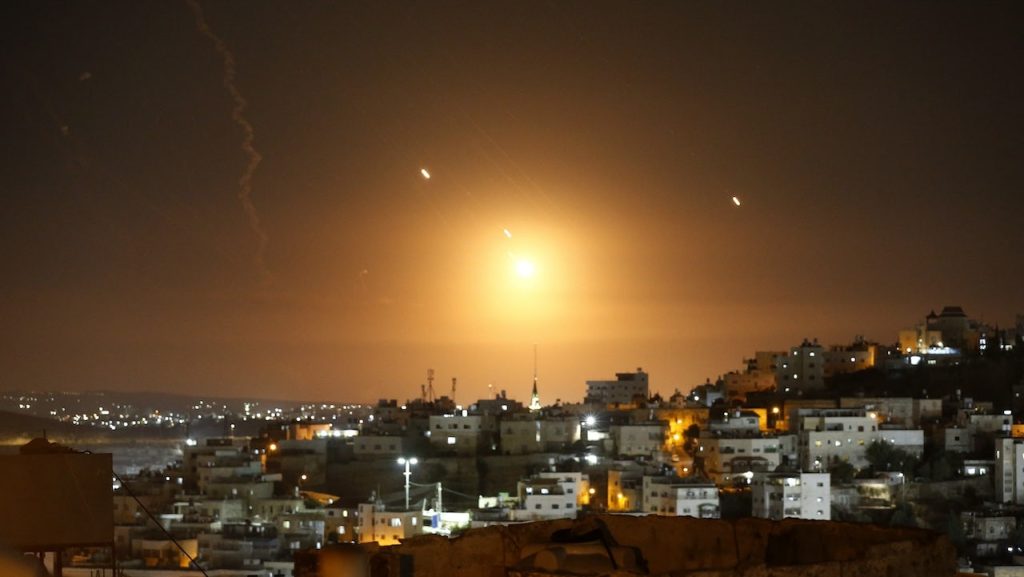Iran has recently launched its largest-ever barrage of missiles at Israel, prompting warnings of further retaliation if Israel were to strike back. Iranian President Masoud Pezeshkian emphasized that Israel must not believe it can act with impunity and that any military attack, terrorist act, or crossing of red lines will be met with a decisive response from Iran’s armed forces. In response to Iran’s attack, Israeli Prime Minister Benjamin Netanyahu convened with the country’s security establishment to address concerns about a potentially lethal regional war. Emir Sheikh Tamim bin Hamad Al-Thani of Qatar also attended the Asia Cooperation Dialogue summit in Doha where he denounced the ongoing violence in the Middle East as genocide perpetrated by Israel. The attacks forced nearly 10 million Israelis to seek shelter in bomb shelters, marking the first time in Israeli history that densely populated cities such as Tel Aviv and Jerusalem faced such devastating attacks. Despite the attacks, the only fatality reported was a Palestinian man in the West Bank.
Following Iran’s missile attack on Israel, President Biden expressed that he would not support an Israeli attack on Iranian nuclear sites in retaliation. While acknowledging Israel’s right to respond, Biden emphasized the importance of a proportional response. Regardless of Israel’s threats to strike Iranian nuclear sites, Biden firmly stated that he would not support such action. The situation has raised fears of a potential lethal regional war as tensions between Iran and Israel escalate. The Israeli security establishment has been monitoring the situation closely and assessing the best course of action in response to Iran’s aggression. With the involvement of key world leaders such as President Biden and Emir Sheikh Tamim bin Hamad Al-Thani of Qatar, the situation in the Middle East continues to be closely monitored as efforts are made to prevent further escalation of violence.
The missile attacks by Iran have drawn attention to the ongoing conflict in the Middle East, with international leaders expressing concern over the potential for a deadly regional war. The attacks by Iran on Israeli cities have caused widespread panic and forced millions of Israelis to seek shelter to protect themselves from the bombardment. In response to the attacks, Iranian President Masoud Pezeshkian warned of further ballistic responses if Israel were to retaliate. The situation remains tense as world leaders grapple with how to address the escalating violence in the region. Despite the mounting tensions, efforts are being made to prevent a full-scale war from breaking out, with key world leaders engaging in discussions to find a peaceful resolution to the conflict.
The situation in the Middle East has been further complicated by the involvement of other regional powers, such as Qatar, which have condemned the ongoing violence and described it as a form of genocide perpetuated by Israel. The presence of Emir Sheikh Tamim bin Hamad Al-Thani of Qatar at the Asia Cooperation Dialogue summit in Doha highlighted the growing international concern over the escalating conflict between Iran and Israel. The attacks on Israeli cities have sparked fears of a wider regional conflict that could have devastating consequences for the entire region. As tensions continue to rise, world leaders are working to defuse the situation and prevent further violence from breaking out. The missile attacks by Iran have underscored the need for a diplomatic solution to the conflict and increased international cooperation to address the root causes of the violence.
President Biden’s refusal to support an Israeli attack on Iranian nuclear sites in response to Iran’s missile strikes at Israel has further complicated the situation, raising questions about the potential for escalation of the conflict. While acknowledging Israel’s right to defend itself, Biden has emphasized the importance of a proportionate response to the attacks by Iran. The situation remains fluid, with world leaders closely monitoring developments in the region and working to prevent further violence from breaking out. As efforts are made to address the root causes of the conflict and find a peaceful resolution, the international community continues to play a crucial role in de-escalating tensions and preventing a wider regional war. With the situation in the Middle East remaining volatile, diplomatic efforts are needed to avoid further violence and instability in the region.


